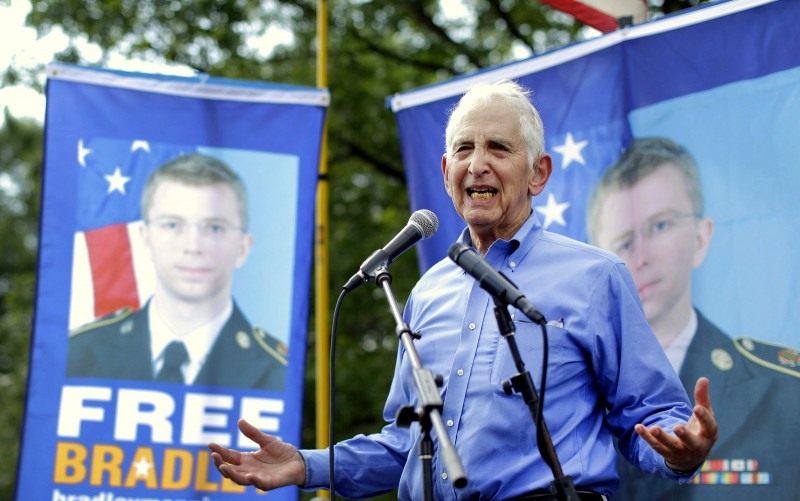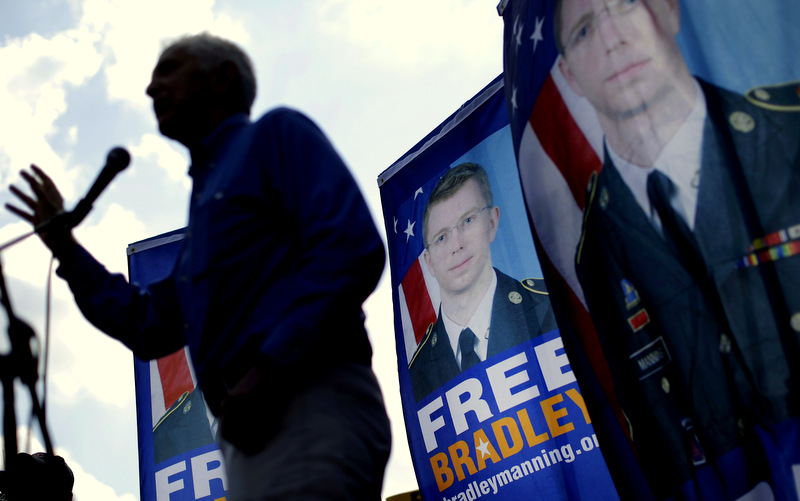
MINNEAPOLIS — MintPress News is proud to host “Lied to Death,” a 13-part audio conversation between famed whistleblower Daniel Ellsberg and social justice activist Arn Menconi.
Menconi wrote that these interviews are a “mixture of historical, political science and Dan’s sixty-year scholarly analysis as a former nuclear planner for Rand Corporation.”
For more information on the interview and Ellsberg, see the introduction to this series.
Chapter 12: “A single person can have an essential effect” on injustice
In the conclusion of Lied To Death, Ellsberg suggests whistleblowing is rare because human nature makes people prone to ignoring or excusing unethical behavior if it means they can avoid being ostracized from their social groups.
Only rarely will an individual find the conscience necessary to expose injustice, he said, from soldiers like Chelsea Manning, who revealed abuse within the U.S. army, including the murder of civilians and journalists, to intelligence agents like Edward Snowden who gave journalists details of the NSA’s mass surveillance program.
“About 1000 people could have done what [Snowden] did,” Ellsberg said, a figure based on his interview with the NSA whistleblower during a visit to Russia, where Snowden lives in exile.
“Why only one?” Ellsberg ased. “Who takes the effort to expose that to the larger world. Why only one Chelsea Manning?”
Ellsberg referred to the famous “Milgram experiment” to explain the reluctance to expose atrocities and corruption. In 1961, Yale University researcher Stanley Milgram showed that people were willing to administer increasingly painful electric shocks to a stranger under orders from a scientist. The experiment has been repeated several times with similar results.
“Humans are not as concerned about inflicting harm and pain … as you would think,” he commented.
He emphasized that the experiment was created after World War II to show that ordinary people anywhere will carry out terrible actions under orders. “It’s not just the Germans who act this way.”
Ellsberg believes that not only do people want to follow orders, but in groups like the army they are even further discouraged from standing up to the group.
He said he believes whistleblowers need to first realize something is wrong, then have to find the inner strength to act on it. “I guess it’s up to me,” he recalled thinking when he decided to leak “The Pentagon Papers.”
Ellsberg emphasized that though his leaks were important to ending the Vietnam War, “I was one link in a chain of events and actions, a number of which were out of the ordinary actions by ordinary people that made it possible for the war to be ended.”
But his example, and those of whistleblowers like Manning and Snowden, show that an individual who is brave enough to act can change the course of history.
“If it’s a question of telling the truth or taking action in resistance against wrongdoing … there is a chance that a single person can have an essential effect,” he said.
https://soundcloud.com/arnmenconi/lied-to-death-conversations-with-daniel-ellsberg-chapter-12-conclusion?in=arnmenconi/sets/lied-to-death-conversations
About Daniel Ellsberg
As sites like WikiLeaks and figures such as Edward Snowden continue to reveal uncomfortable truths about America’s endless wars for power and oil, one important figure stands apart as an inspiration to the whistleblowers of today: Daniel Ellsberg, the whistleblower who leaked the “Pentagon Papers,” over 7,000 pages of top secret documents, in 1971.
A military veteran, Ellsberg began his career as a strategic analyst for the RAND Corporation, a massive U.S.-backed nonprofit, and worked directly for the government helping to craft policies around the potential use of nuclear weapons. In in the 1960s, he faced a crisis of conscience while working for the Department of Defense as an assistant to Assistant Secretary of Defense for International Security Affairs John T. McNaughton, where his primary duty was to find a pretext to escalate the war in Vietnam.
Inspired by the example of anti-war activists and great thinkers like Gandhi and Martin Luther King, Jr., he realized he was willing to risk arrest in order to prevent more war. Lacking the technology of today’s whistleblowers, who can carry gigabytes of data in their pockets, he painstakingly photocopied some 7,000 pages of top secret documents which became the “Pentagon Papers,” first excerpted by The New York Times in June 1971.
Ellsberg’s leaks exposed the corruption behind the war in Vietnam and had widespread ramifications for American foreign policy. Henry Kissinger, secretary of state at the time, famously referred to Ellsberg as “the most dangerous man in America.”
Ellsberg remains a sought-after expert on military and world affairs, and an outspoken supporter of whistleblowers from Edward Snowden to Chelsea Manning. In 2011, he told the Chelsea Manning Support Network that Manning was a “hero,” and added:
“I wish I could say that our government has improved its treatment of whistleblowers in the 40 years since the Pentagon Papers. Instead we’re seeing an unprecedented campaign to crack down on public servants who reveal information that Congress and American citizens have a need to know.”


